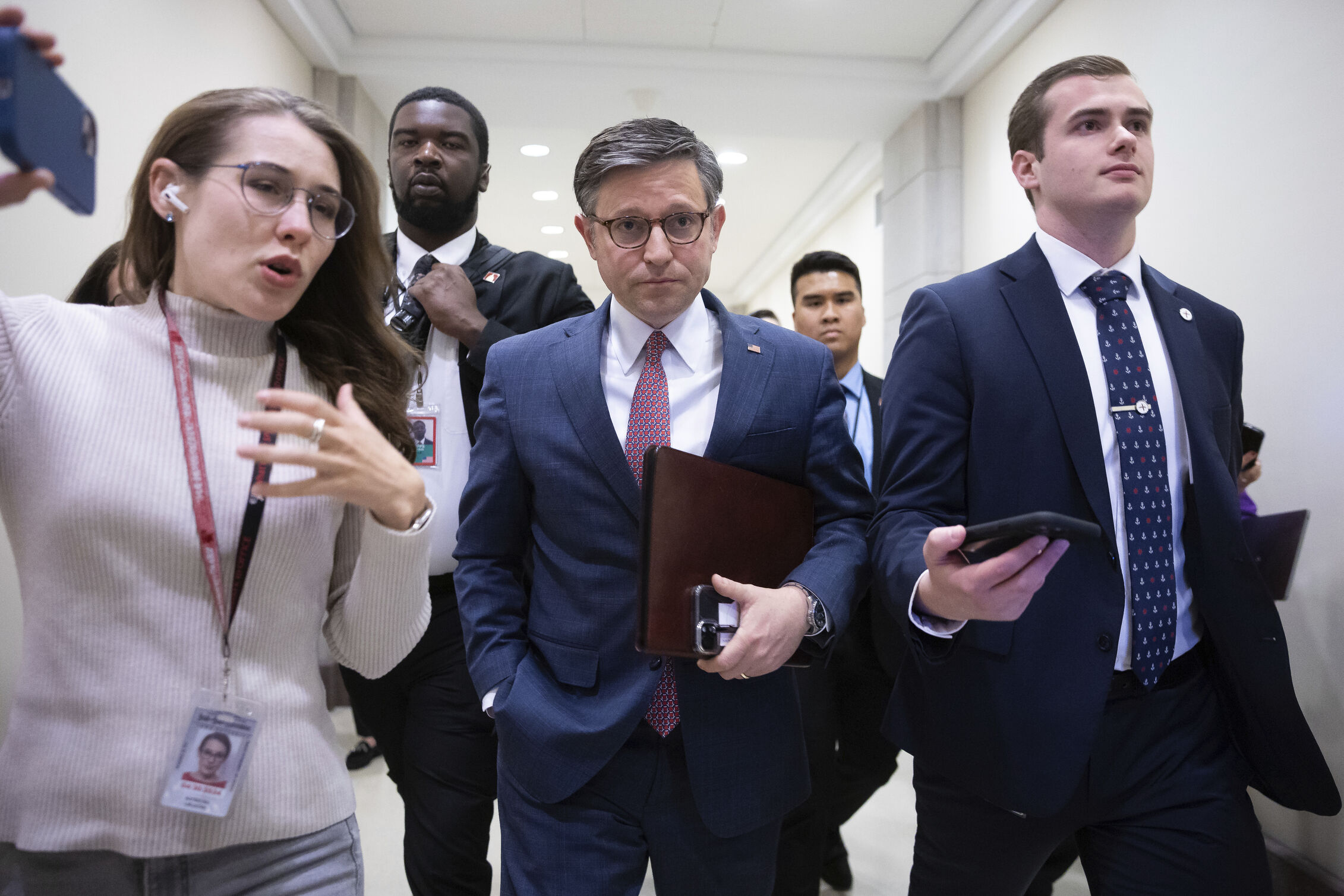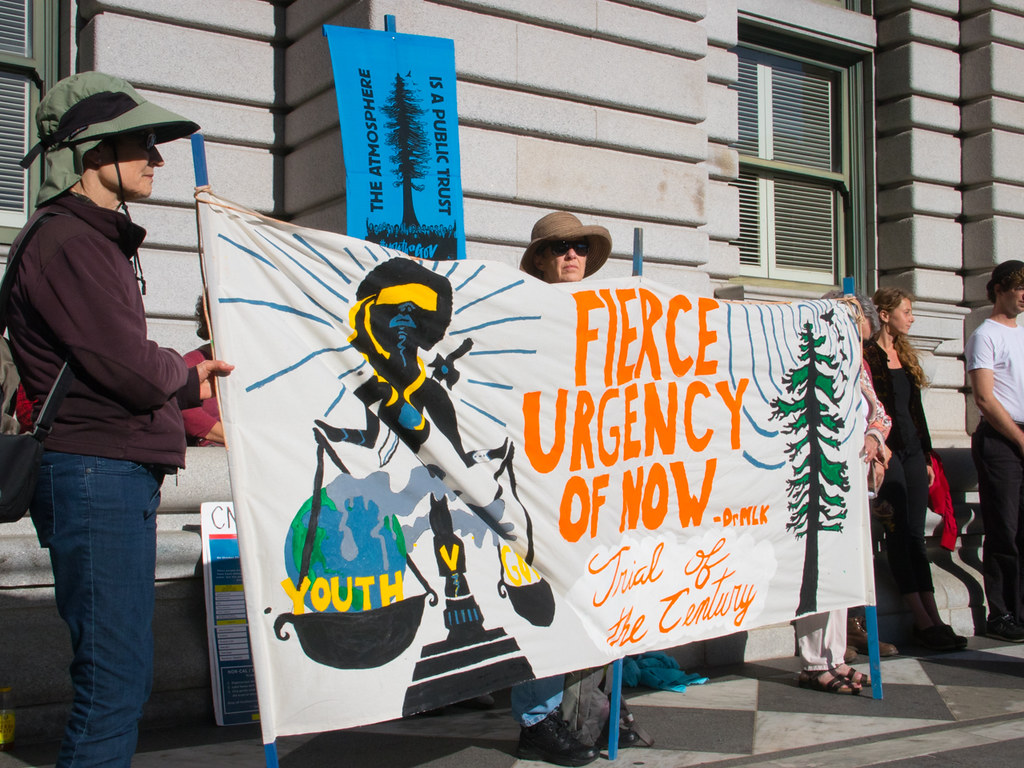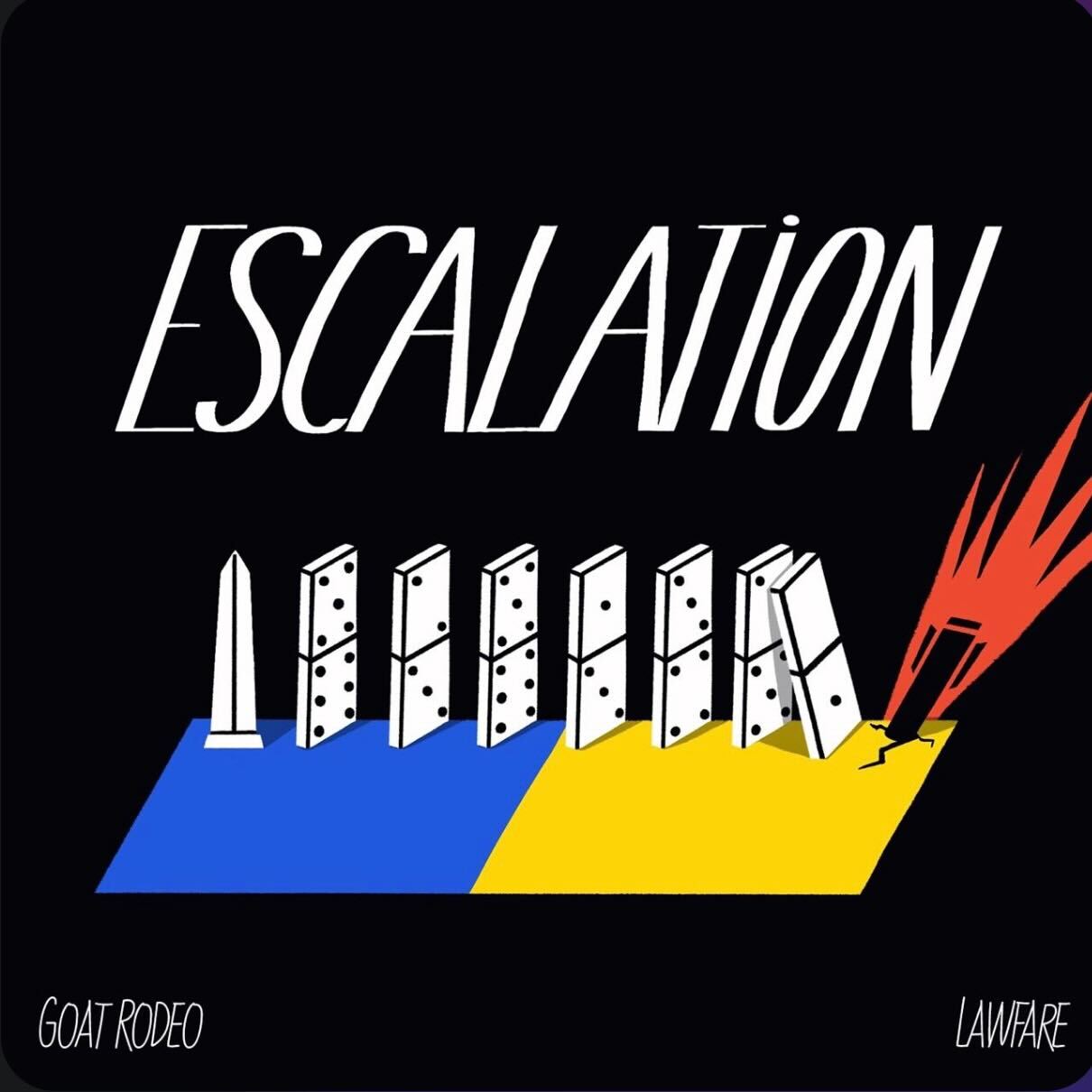Saudi Journalist Disappears at Consulate in Turkey, Iraq Forms a New Government, U.S. Withdraws from Treaties after Challenges at International Court
Washington Post Columnist Disappears at Saudi Consulate in Turkey
Published by The Lawfare Institute
in Cooperation With

Washington Post Columnist Disappears at Saudi Consulate in Turkey
Jamal Khashoggi, a respected Saudi journalist who in recent years has lived in the United States and penned columns for the Washington Post, disappeared after visiting the Saudi consulate in Istanbul on October 2. He had visited the consulate days before and was reportedly returning to pick up paperwork proving his divorce so he could remarry. When he did not leave the embassy after four hours, his fiancée, who was waiting outside, called police.
Turkish authorities now believe that Khashoggi was tortured and killed at the consulate and his body dismembered and removed from the premises. Turkish media reported that two Gulf Stream jets carrying 15 Saudi diplomats and other officials arrived in Istanbul before Khashoggi’s appointment at the consulate on October 2 and then departed later that day. People knowledgeable about the investigation told the Washington Post that the delegation was dispatched with the intent of silencing Khashoggi. “It was a preplanned murder,” one said.
Some hope remains that Khashoggi is alive and being held by the Saudis. After the police’s suspicions were reported, Turkish President Recep Tayyip Erdogan said over the weekend that he was still hoping for a “positive outcome.” The Saudi government has denied that Khashoggi was killed on the premises or even that he was detained, claiming that he left after a brief appointment. A release from the Saudi Press Agency cited Saudi officials casting doubts on the credibility of reports about the Turkish police investigation and noting that a Saudi investigative team arrived in Istanbul on Saturday to also work on the case. On Monday night, rumors continued to swirl about Khashoggi’s possible whereabouts and whether he might still be alive and in Saudi custody. There is little evidence to support either conclusion, but hope that he is alive is diminishing.
Khashoggi has been a relatively mild critic of the Saudi government. His ties to the regime run deep and, in addition to his journalistic career, he also worked at one time as an advisor to a senior Saudi intelligence official. He vocally supported Crown Prince Mohammed bin Salman’s ("MBS’) domestic social reforms, even while criticizing his repression of political dissent and counterproductive foreign policy—the stalemated war in Yemen, the petty feud with Canada, and the myopic focus on Iran. As the Washington Post reported last week, “Khashoggi may have been considered especially dangerous by the Saudi leadership ... His criticisms of the royal family and its vast powers were delivered from his self-imposed exile in the United States and could not be dismissed as the complaints of a longtime dissident.”
If Khashoggi is dead, it would be a shocking escalation of Saudi Arabia’s crackdown on political dissent. Saudi officials have arrested dozens of dissidents at home in recent months, even trying some for treason and espionage; one woman, Loujain al-Hathloul, was detained and renditioned while studying abroad in the United Arab Emirates. The University of Toronto’s Citizen Lab reported last week that it believes Saudi spies were attempting to surveil a Saudi dissident living in Canada. But the extrajudicial murder of a Saudi critic in a foreign country would be a new development, made more shocking by Khashoggi’s stature as an internationally recognized journalist.
Despite a concerted effort to consolidate his power, including arresting and fleecing many of his royal rivals last year, MBS appears more embattled than ever. Last month, Brookings’ Bruce Riedel wrote for Al-Monitor that the kingdom is more unstable now than at any time in the previous fifty years and that the crown prince reportedly spends much of his time aboard his personal yacht as a safety precaution. But in an interview with Bloomberg last week, MBS tried to assure reporters (and the investors who read them) that the country’s ambitious economic reforms are continuing and even revived speculation about plans to make an initial public offer on Aramco, the state oil company, an effort that previously had been postponed indefinitely. He framed his ambition in terms of dramatically reshaping the country. “I believe that a lot of movements that happen around the world, they happen with a price,” he said, comparing his agenda the end of slavery in the United States and the U.S. civil war. “Here we are trying to get rid of extremism and terrorism without civil war, without stopping the country form growing, with continuous progress in all elements. So if there is a small price in that area, it’s better than paying a big debt to do that move.” When pressed about domestic repression, he managed expectations. “I didn’t call myself a reformer of Saudi Arabia. I am the crown prince of Saudi Arabia and I am trying to do the best that I can do through my position,” he said.
Asked about Khashoggi, MBS claimed that he had left the consulate after less than an hour but refused to say if he was wanted on criminal charges in Saudi Arabia.
The Trump administration did not respond to Khashoggi’s disappearance until Monday, when President Donald Trump was asked about the situation. "I am concerned. I don't like hearing about it. Hopefully that will sort itself out," he said. "Right now, nobody knows anything about it. There are some pretty bad stories going around. I do not like it." In a statement issued by Secretary of State Mike Pompeo on Monday night, the State Department called on the Saudi government “to support a thorough investigation of Mr. Khashoggi’s disappearance and to be transparent about the results of that investigation.” Many members of Congress, on both sides of the aisle, have been outspoken about their concern for Khashoggi and called for accountability.
In his reporting, Khashoggi witnessed how the Saudi government’s repression had placed his friends, sources and activists at risk. Last May, in a column for the Post, he wrote about his decision to leave the country, describing a culture of fear that had taken root. “[U]nlike two or three years ago, any foreign contact that deviates from the approved script is treasonous,” he wrote. “Yes, treasonous—that is the word that was used to publicly defame those arrested.” In the days before his disappearance, he assured friends that workers at the consulate in Istanbul would help him—that they “were just ordinary people”—but he knew the risks well enough to leave his fiancée with his phone and instructions to call a friend if he did not return.
“I expect that I will still wake up every morning and ponder the choice I have made to speak my mind about what is happening in Saudi Arabia,” he wrote in May:
Despite the anguish it causes me, it reminds me of how much I miss my country and my home. But now, after these fresh arrests and the public humiliation of these individuals, my doubts are greatly diminished. The social reforms that are so important to Saudi Arabia cannot come at the expense of the public space once available to us for discussion and debate. Repression and intimidation are not—and never should be—the acceptable companions of reform.
Iraq Reaches Agreement on New Government
After months of stalemate and successive crises, the blocs that succeeded in Iraq’s May elections have agreed on a government. Adel Abdul Mahdi, a former vice president who is not tied to any political party, will succeed Haider al-Abadi as prime minister. Abdul Mahdi was put forward as a potential consensus candidate by Muqtada al-Sadr, the cleric who led a slate of anti-corruption reform candidates to a top finish in May, but was almost blocked by militia leader Hadi al-Amiri and former prime minister Nouri al-Maliki, who favored more pro-Iran candidates. They were joined by Ahmed al-Jabouri, a pro-Iranian Sunni politician, who lobbied to swing the presidential vote to create a pro-Iran governing coalition, according to audio obtained by the Daily Beast. Abdul Mahdi, though, garnered endorsements from Kurdish and Sunni politicians and Grand Ayatollah Ali Sistani, the highest Shia authority in Iraq, and Amiri and Maliki backed down when it became apparent that they did not have the votes to form their own coalition.
“Abdul Mahdi’s elevation, therefore, is a compromise everyone can live with, including the United States, Saudi Arabia, Sadr, Kurdish parties, and even Iran,” Hussein Ibish, of the Arab Gulf States Institute in Washington, wrote last week. “Indeed, he is a formerly sectarian Shia politician who once had deep ties to Tehran, but has since become much more of a nationalist nonsectarian figure. He therefore represents many of the same tendencies as Sadr—Iraqi nationalism and outreach to Kurds and Sunni Arabs but from an unmistakably Shia communal basis.”
A new president, a largely symbolic position traditionally held by a Kurd, was also selected. Kurdish parties nominated two candidates this year, reflecting heightened internal tensions in Iraq’s north, but Barham Salih was elected by an overwhelming margin on account of his more conciliatory position on Kurdish independence. His rival, Fuad Hussein, said afterwards that Salih’s candidacy violated a political agreement, but called on everyone “to preserve the unity of Kurdistan’s people.”
The new leadership is expected to present a cabinet to the parliament for consideration by the beginning of next month.
U.S. Withdraws from Treaties after Legal Challenges at International Court
The United States withdrew from two international agreements last week in response to separate international complaints brought by Iran and the Palestinian government. The first was the 1955 Treaty of Amity between the United States and Iran—a vestige of the U.S.-Iran partnership during the Cold War, when the country was under the leadership of the shah. “We ought to have pulled out of it decades ago,” Secretary of State Mike Pompeo told reporters last Wednesday. The treaty, though, has remained on the books and been a tool by which Iran has periodically challenged U.S. policies. As John Bellinger III wrote for Lawfare last week,
the Iranian government has now relied on the treaty to sue the United States in the ICJ [International Court of Justice] three times, first in 1992 in the Oil Platforms case (which Iran filed after U.S. forces attacked Iranian oil rigs that had been used to mine the Persian Gulf), then in 2016 in the Certain Iranian Assets case (which Iran filed after the U.S. allowed the attachment of Iranian assets to pay terrorism judgments), and again in July 2018 in the Nuclear Sanctions case.
Bellinger called Iran’s legal use of the treaty “the epitome of ‘lawfare’” and argued that the U.S. withdrawal, though unfortunate, was probably overdue.
The administration’s withdrawal from the treaty was a response to the ICJ’s provisional decision that U.S. sanctions on Iran must exempt certain humanitarian goods. The case was brought by Iran, which argued that the Trump administration’s re-imposition of sanctions after withdrawing from the Joint Comprehensive Plan of Action was a violation of the 1955 treaty. “However, the provisional measures the court ordered—the equivalent of a preliminary injunction—fall significantly short of the relief that Iran sought,” Elena Chachko wrote in a summary of the decision and its implications for Lawfare.
Rather than requiring the United States to fully reinstate sanctions relief, the order only mandates the U.S. to ensure that re-imposed sanctions exempt certain humanitarian goods. Furthermore, the court strongly implied that one of the United States’ key arguments, while insufficient to deny the court jurisdiction, would be favorable to the U.S. position in the merits stage of the case.
The second treaty the United States withdrew from last week is more consequential. Wednesday evening, after Pompeo had announced the withdrawal from the Treaty of Amity, National Security Advisor John Bolton told a press conference that the United States would also pull out of the Optional Protocol to the Vienna Convention on Consular Relations, which allows violations of the Convention to be tried at the ICJ. The decision was prompted by a complaint brought by the Palestinian government, which is recognized as a state by the court, alleging that the United States violated the Vienna Convention when it moved its embassy in Israel from Tel Aviv to Jerusalem. Bellinger argues that the U.S. withdrawal is an “overreaction, motivated more by ideological dislike of the ICJ (which John Bolton called ‘politicized and ineffective’) than by any real legal necessity.” He notes that the Bush administration also decided to withdraw from the Optional Protocol, but only after a series of cases brought by multiple countries regarding the United States not notifying consular officials of the arrests of foreign nationals. The Trump administration, though, does not face the same legal challenges and, in fact, stands a good chance of winning the case brought by the Palestinian government. “In sum, for reasons that appear to be purely speculative ... the Trump administration is depriving future U.S. presidents of a valuable legal tool to defend U.S. diplomats and embassies,” he wrote.





